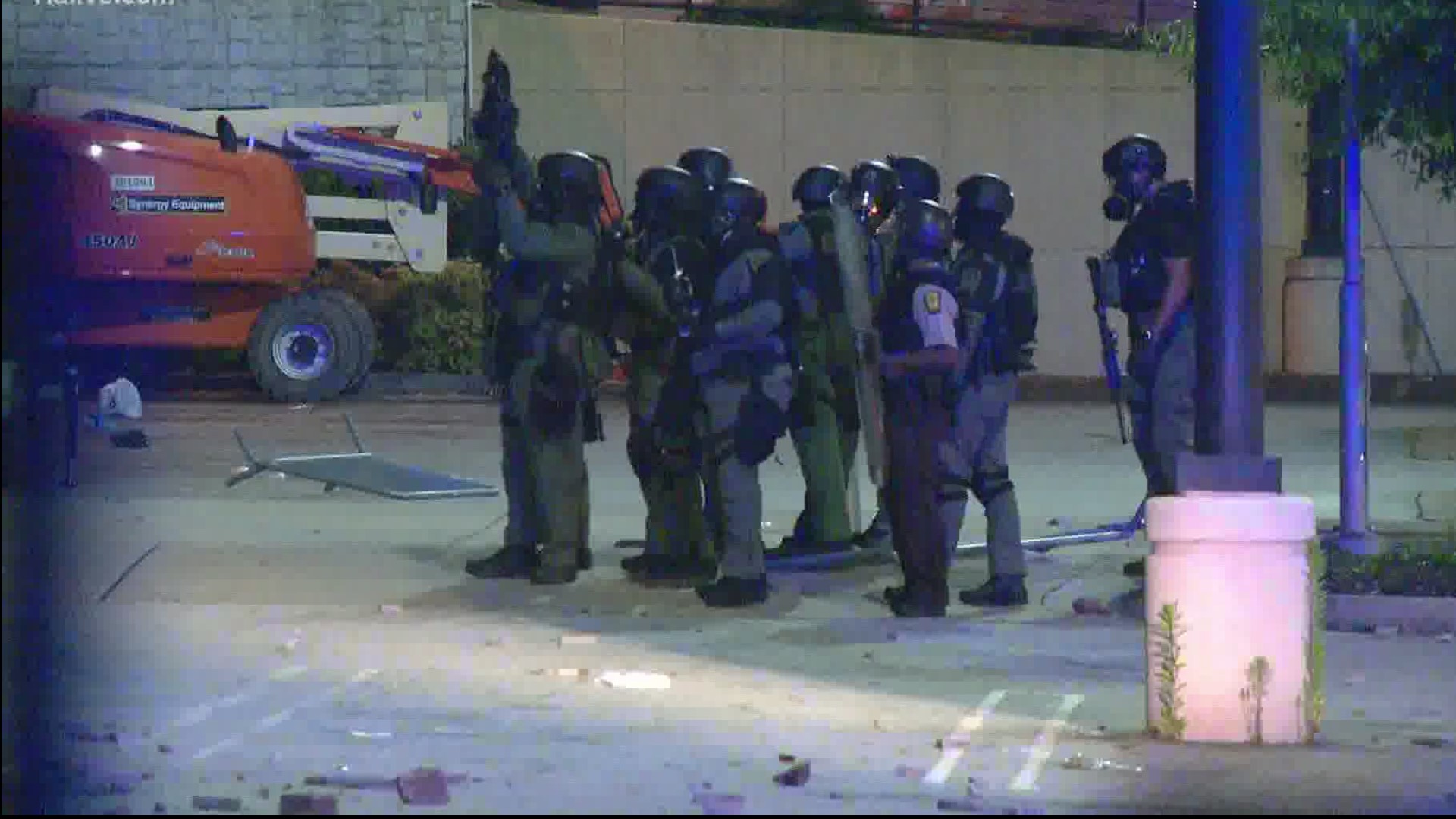ATLANTA — Atlanta needs to provide a way for the public to submit recordings of police uses of force for use in investigations into the incidents, according to an executive order signed by the mayor.
The directive came in one of three executive orders that Mayor Keisha Lance Bottoms signed soon after receiving recommendations from a use of force advisory council she created June 4, according to a news release Thursday.
The other two orders first, bolsters the Atlanta Citizens Review Board and second identifies changes to improve body camera compliance from the current 94 percent.
The creation of the council followed about a week of sometimes turbulent protests in the city sparked by George Floyd’s death under a police officer’s knee in Minneapolis.
The council is made up of 28 members of the Atlanta community and held its first meeting on June 10, 2020. The Council’s 10 early actions are outlined below:
- Commit to revising the Use of Force continuum in Standard Operating Procedures (SOP) to increase specificity and align with best practices;
- Ensure that changes taken under the Mayor’s Administrative Orders 2020-18 align with best practice policy changes from other cities and continue measures for accountability;
- Commit to identifying policies to improve officer compliance and public transparency of captured body worn camera footage;
- Create a centralized repository for witness footage of use of force by officers;
- Mandate immediate drug testing for officers when a use of force incident resulting in serious injury or death occurs;
- Commit to re-evaluating and revising mission, vision, core values, and oath
of the Atlanta Police Department; - Conduct additional screenings - including mental health and implicit bias assessments - for all applicants during the recruiting process, and on an ongoing basis for all officers;
- Require more exhaustive background checks with attention to record of complaints from other agencies, previous applications to police departments, and social media sentiment;
- Extend powers and community awareness of Atlanta Citizen Review Board (ACRB); and
- Begin to evaluate policies, procedures, and partner organizations for least harm approach to reduce the likelihood of use of force long-term, including use of non-law enforcement officials for community crisis response and expansion of the pre-arrest diversion program.

